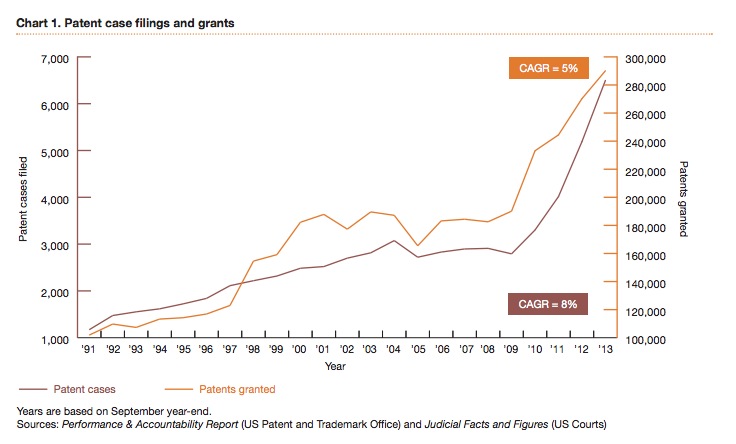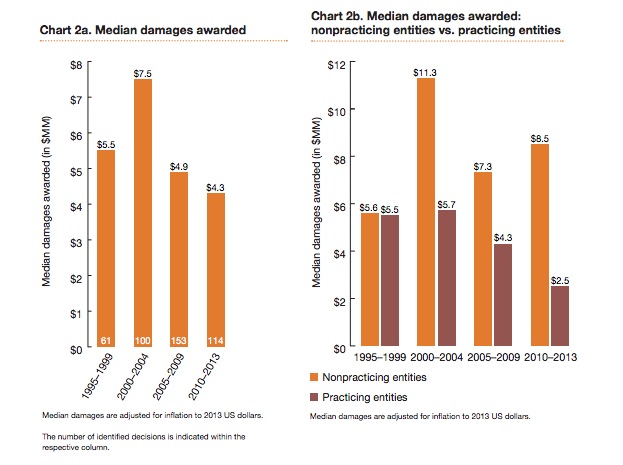
Patent trolls now account for 67 percent of all new patent lawsuits
By Brian Fung

Despite the sudden collapse of patent legislation in Congress earlier this year, most policymakers agree that patent trolls are a huge drag on the U.S. economy. By filing one frivolous lawsuit after another, trolls extractenormous payments from companies simply by claiming infringement — they don't have to do very much to back up their assertions, nor do they have to be using the patents to sue.
A new study from PricewaterhouseCoopers shows that the problem is getting worse: While monetary awards from patent lawsuits are decreasing overall, patent trolls — also known as non-practicing entities because they simply stockpile patents without making anything with them — are making way more off of litigation than their practicing counterparts. Even as the median award has shrunk over time, awards to trolls are only growing.

In fact, PwC finds, patent trolls' median awards are now three times higher than those of other companies. Non-practicing entities (NPEs) also account for an increasing share of all patent lawsuits filed, at 67 percent. That's up from 28 percent just five years ago.
Even though most of these cases either get dismissed or settled out of court, those that do go to trial often end in victories for the trolls — largely because the cases are being filed in troll-friendly courts, like the Eastern District of Texas.
Congressional legislation could make it more difficult for trolls to launch new lawsuits. The latest effort would have required the loser in a lawsuit to cover the winner's legal fees and for NPEs to state more clearly what was being infringed at the outset. A House version of the bill passed overwhelmingly earlier this year, but the Senate version came apart at the last minute.
There's a burgeoning push to revive patent legislation in the House, focusing on a bill known as the TROL Act. But it still has a long road ahead — and critics say the measure is much weaker than its predecessor.

